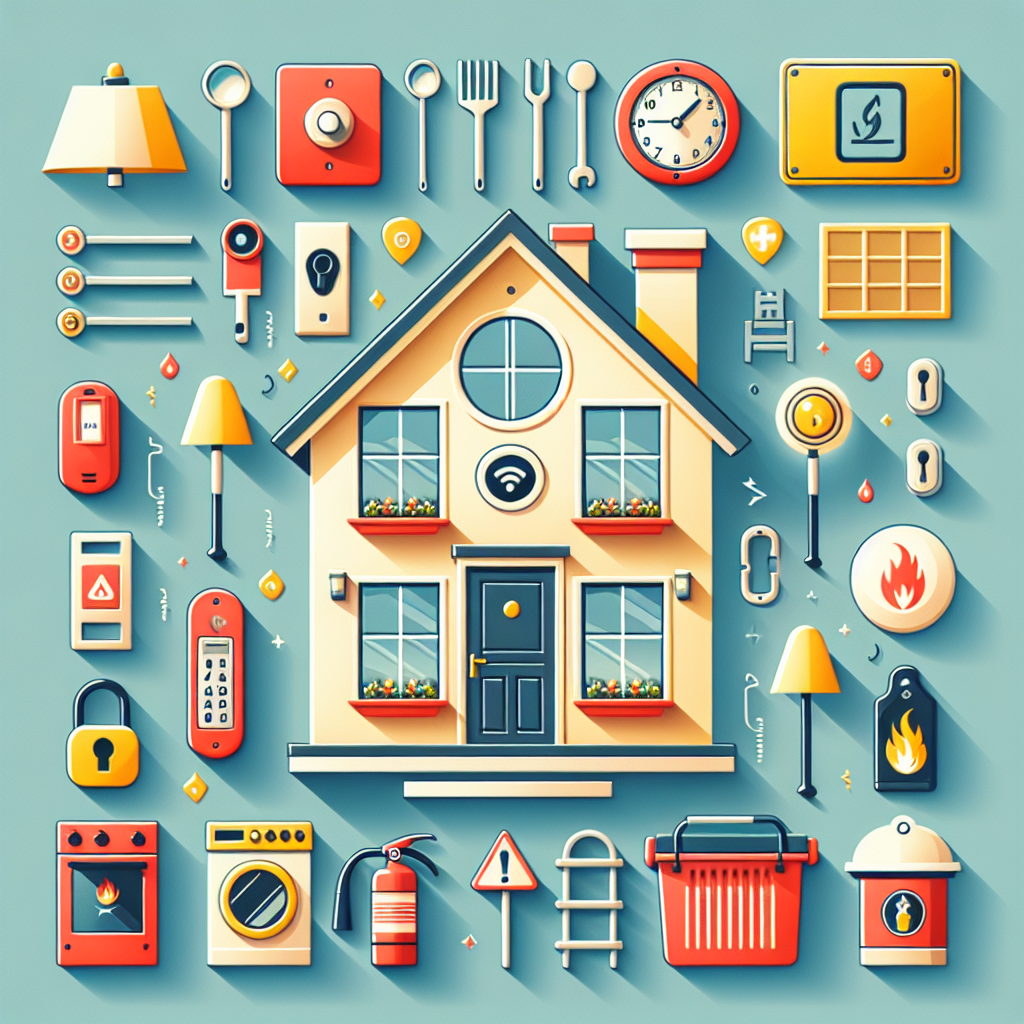Top Home Safety Tips: A Must-Read Guide for Every Homeowner
- hmhomeinspectionco
- Aug 22, 2024
- 2 min read
As homeowners, ensuring the safety and security of our homes is of utmost importance. From preventing accidents to protecting our loved ones, home safety should be a top priority. In this article, we’ll delve into some essential home safety tips that every homeowner should know and implement.
1. Install Smoke Alarms in Key Areas

One of the fundamental safety measures for any home is having smoke alarms installed in crucial areas such as the kitchen, bedrooms, and hallways. Regularly check the batteries and test the alarms to ensure they are functioning correctly.
2. Secure Your Home with Quality Locks
Invest in high-quality locks for your doors and windows to deter potential intruders. Consider installing deadbolts and smart locks for added security. Remember to always lock your doors, even when you’re at home.
3. Keep Emergency Numbers Handy
In case of emergencies, make sure to have important numbers such as local emergency services, poison control, and family contacts saved in an easily accessible location. This quick access can be invaluable during stressful situations.
4. Childproof Your Home
If you have young children or pets, childproofing your home is essential to prevent accidents. Install safety gates, secure furniture to walls, and cover electrical outlets to create a safe environment for your little ones.
5. Create an Evacuation Plan

Develop a detailed evacuation plan with your family in case of fire or other emergencies. Practice the plan regularly so that everyone knows what to do and where to meet outside the home.
6. Regularly Maintain Home Appliances
To prevent electrical fires and other hazards, it’s crucial to maintain your home appliances regularly. Clean dryer vents, check for frayed cords, and have heating systems inspected annually by professionals.
7. Install Carbon Monoxide Detectors
Carbon monoxide is a silent but deadly gas that can be emitted by home appliances. Protect your family by installing carbon monoxide detectors in key areas of your home, especially near bedrooms.
8. Secure Stairways and Outdoor Areas
Ensure that stairways are well-lit and have sturdy handrails to prevent falls. Outdoor areas should also be well-maintained to avoid tripping hazards like uneven walkways or loose tiles.
9. Be Mindful of Fire Hazards

Avoid fire hazards by not overloading electrical outlets, never leaving candles unattended, and keeping flammable items away from heat sources. Safety precautions can significantly reduce the risk of fires.
10. Join a Neighborhood Watch Program
Community involvement is a great way to enhance home safety. Joining a neighborhood watch program can help deter crime and promote a safer environment for everyone in the area.
Remember, creating a safe home environment requires a combination of preparedness, vigilance, and implementing safety measures. By following these top home safety tips, you can protect your home and loved ones from potential dangers. Stay safe, stay informed, and prioritize home safety in your daily life.
Implementing these simple yet effective home safety tips can provide peace of mind and ensure that your home remains a safe haven for you and your family.


Comments